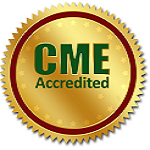
Jörg C. Gerlach
Professor
University of Pittsburgh
United States
Biography
Dr. Gerlach was recruited to the University of Pittsburgh after the Washington-based non-profit World Technology Evaluation Center (WTEC) report, “Tissue Engineering and Research 2002", identified him as one of the experts worldwide addressing 3-D perfusion high-density culture design for medical devices. Dr. Gerlach holds an MD and two PhDs with a background in surgery, experimental surgery, and bioengineering. With his dual appointment, he directs the interdisciplinary Bioreactor Group at the McGowan Institute for Regenerative Medicine within the University of Pittsburgh and contributes to the Schools of Medicine and Engineering. Most of his projects focus on cell biology methodology and bioengineering technology developments are designed to contribute to knowledge on controlling cell behavior for anticipated patient treatments. His working hypotheses, consequently, relates mostly to the behavior and function of progenitor cells in an in vitro environments that he developed. Dr. Gerlach´s general interest is in technologies for the clinical translation of stem cell biology research, and he concentrates on the development of innovative cell-based therapies. In the area of skin he developing active wound dressings and cell spray grafting technologies. His “Skin Gun†development was broadcasted on National Geographic TV and is posted on YouTube under the key word “skin gunâ€.
Research Interest
Dr.Gerlach's research focus is on improving the understanding of how to control the expansion and differentiation of stem cells on a clinical translation scale. Organs and cells of interest have been skin, liver, bone marrow and hematopoietic, neuronal, adipose tissue, and cancer cells. He works with adult progenitors, fetal tissue derived progenitors, and embryonal stem cell lines. He specializes in advancing 2-D in vitro culture models to 3-D perfusion high-density cell-co-culture systems for stem cells, development of bioreactors for organ support, and systems for the production of cells for regenerative medicine cell transplantation. General topics include maintenance and differentiation of cells in vitro for extracorporeal, temporary clinical use as a hybrid organ, in vitro models for studies on stem cell niche interactions, and production of cells in cell-based therapy.

